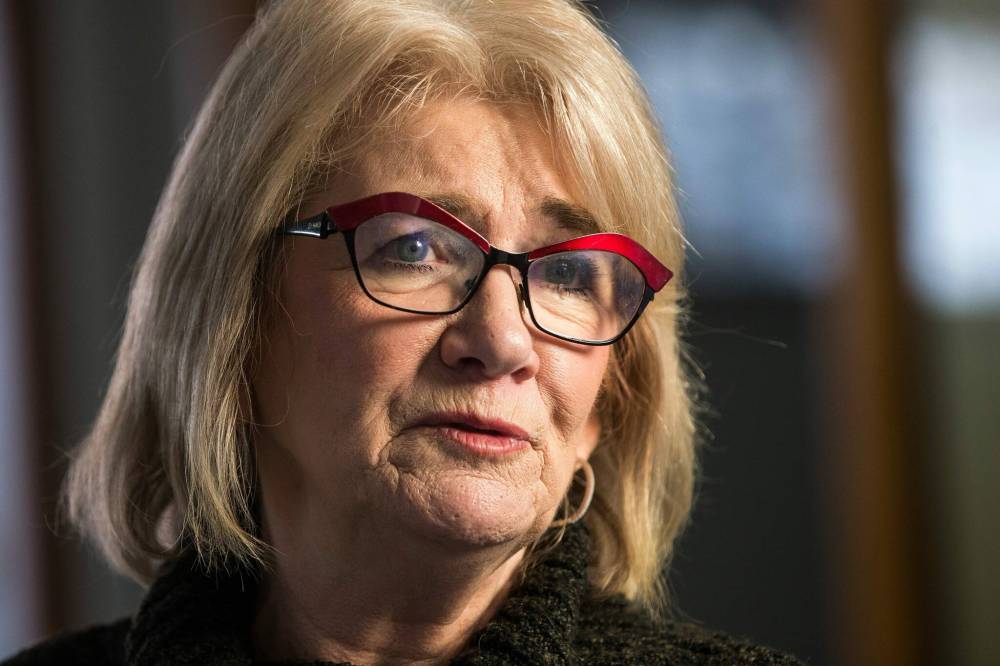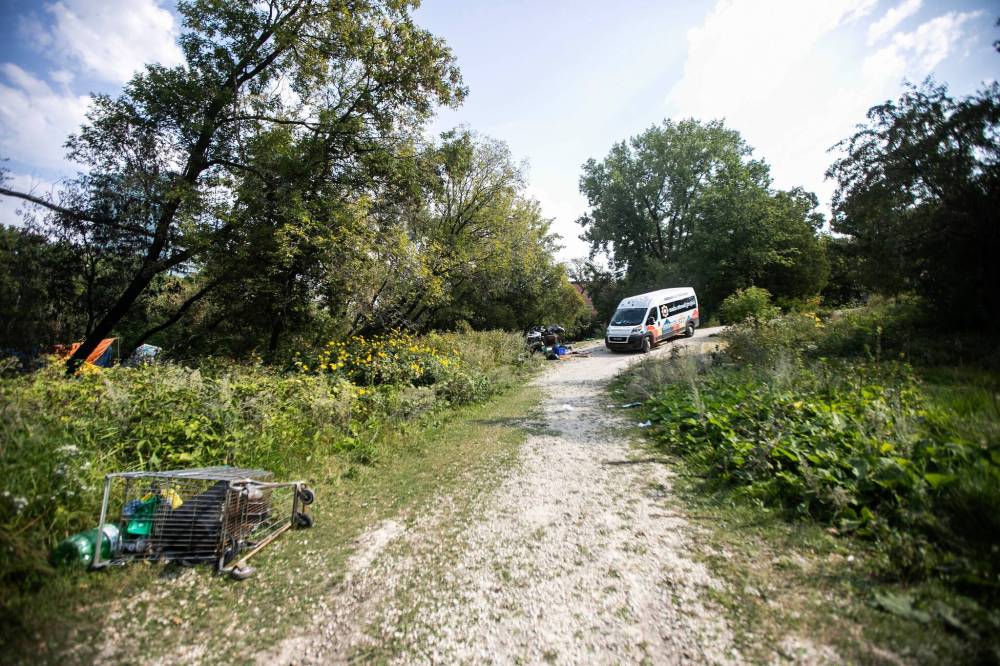New documents shed light on what was happening behind the scenes when Winnipeg’s mayor issued a cryptic warning this summer to outreach groups not to interfere in first responders’ work at homeless encampments.
It appears the implied conflict wasn’t only between first responders and outreach teams, but also the advocates themselves.
Months later, tensions continue to simmer around who is responsible for what, heightened in the wake of the death of Tammy Bateman, an Indigenous woman who was struck and killed by police driving through a riverside encampment on Sept. 2.

The infighting has played out while the province works to develop a “made-in-Manitoba” approach to homelessness that requires all stakeholders to work together.
On June 25, Mayor Scott Gillingham sent a letter to outreach providers stating: “There appears to be some confusion regarding protocols for addressing criminal activity or safety issues” at encampments. “It is crucial (the Winnipeg Police Service) and (Winnipeg Fire Paramedic Service) be allowed to do their work without interference.”
”I think (the mayor’s response) was entirely because of this letter… It’s got a bit of a bite to it.”–Marion Willis, Street Links executive director
The letter became public a month later, but the issues prompting it remained shrouded in secrecy. Outreach groups said they were confused by it and police and first responders were largely silent. Gillingham declined to give specific examples or say who had raised concerns.
Emails obtained via a freedom of information request suggest a sternly worded letter from Marion Willis, executive director at St. Boniface Street Links, likely triggered the response.

In a June 11 email to the mayor and others, Willis stated her team’s efforts to dismantle a tent encampment and help house residents was thwarted by other outreach groups.
“They essentially undid all the work (police) and our team had done,” Willis wrote. “As an organization that has tried its best to model what change can look like, we’re extremely frustrated.”
Willis’s letter was redacted in the freedom of information response — deemed confidential advice — but she recently shared it with the Free Press.
“I think (the mayor’s response) was entirely because of this letter,” Willis said this week. “It’s got a bit of a bite to it.”
Around the time the mayor sent his letter, conflict between outreach providers with different philosophies was playing out at encampments. In June, Main Street Project and St. Boniface Street Links had clashed over how to help people who were living in a riverside site at Glengarry Park in Southwood. Coun. Janice Lukes, who represents the area, told reporters Street Links was helping the people find places to live, but Main Street Project workers told them they had the right to stay.
At the time, a Main Street Project spokesperson said the not-for-profit takes “a human rights-based approach to supporting community members,” while Willis stressed her team is focused on housing. Some encampment residents told the Free Press at the time that while they wanted housing, they didn’t want to work with Street Links.
“The goal should always be to work with people and move them into housing,” Willis reiterated this week. Main Street Project refused an interview request.
The documents also suggest police concerns spurred Gillingham to act.
On June 19, the Winnipeg Police Service executive director of strategic affairs, Kim Nicholson, sent an email to the mayor with the subject line “MSP and encampments.” The email appears to be about two paragraphs long but is almost entirely redacted. The last line reads: “Hope this is helpful.”
Police confirmed this week they had raised the issue of ideological clashes at camps with the mayor.

“There was one particular incident where police and fire and different outreach providers from different organizations were all there and couldn’t agree on the path forward,” Supt. Dave Dalal told the Free Press, adding the June incident was not related to a criminal matter. “It was an uncomfortable moment in front of encampment residents.”
Dalal said one of the groups involved was Main Street Project, an organization on which he has served as a board member. Police ended up speaking with Main Street Project’s management about their concerns — Dalal said the incident itself wasn’t a huge deal but recent similar interactions were causing “ongoing challenges” — before flagging them with the mayor’s office.
“We all want to work together and it doesn’t help if people with slightly different philosophies are not on the same page,” Dalal said.
He said Main Street Project was receptive to the concerns and said they would alert police if they similarly had issues with police officers.
It’s unclear why city officials were tight-lipped about what prompted the mayor’s letter.
Emails obtained in a separate freedom of information request show reporters tried to get clarity from fire and paramedics on what, if any, specific incidents led to it.
“I think it would be good if we could provide something to corroborate what the mayor said,” a city communications staffer wrote. “We don’t need to get into specifics.”

After back-and-forth emails, a spokesperson decided to go with a short vague statement that said the fire and paramedics service supports the mayor and will continue to work collaboratively with service agencies at encampments.
Reporters weren’t the only ones asking questions.
“I’ve also gotten questions from service providers asking if I know about any of the situations he’s referencing,” wrote one WFPS official.
The documents show several groups working with the homeless wrote a five-and-a-half page letter to the mayor’s office on July 25. The pages are almost entirely redacted.
The letter, signed by Main Street Project, Sunshine House and others, concludes: “We are eager for meaningful engagement and full co-operation from all levels of government including the City of Winnipeg, to alleviate this crisis together. We are requesting an in-person meeting with you to discuss these matters immediately.”
In an interview, Gillingham said he has since met with some outreach providers and plans to meet with others soon, but wouldn’t say what sparked his letter.
The city and the province both say they remain committed to ending homelessness, which means working with stakeholders in all sectors.
”There was one particular incident where police and fire and different outreach providers… couldn’t agree on the path forward.”–WPS Supt. Dave Dalal
The province is applying lessons learned from a recent trip to Houston by a 26-person delegation to study that city’s collaborative and cohesive approach to housing, said Bernadette Smith, Manitoba’s housing minister. This includes establishing a so-called navigation centre where people leaving encampments can get their bearings before transitioning into housing.
Smith said since the NDP was elected last November, the province has moved more than 1,100 people, which includes those in encampments, in homeless and gender-based violence shelters, women, families and refugee claimants, into permanent housing with supports. However, housing supply remains an issue, she said.

MIKE DEAL / FREE PRESS
Terry trends to a fire while drying clothing at Fort Rouge Park. He is on a waiting list for housing.
Over at the camp in Fort Rouge Park, residents aren’t concerned with “bureaucratic bulls—-,” but rather with finding a safe place to sleep.
Terry, who has lived at the site for four months, said it’s hard for people who are homeless to think about the long term, even as outreach groups check on them. A warm meal means the most to him, he said.
Still, he wants to be housed and is now on a wait list through Main Street Project. He still senses competition between outreach groups, with some trying to convince residents their program is better than others. Terry said he had lived in Manitoba Housing but decided to leave after getting too many citations for having friends over.
Now, he’s formed a community among the six or so people at the riverbank encampment. On Wednesday, he was getting a fire started for his friend James, who was sitting under a tarp in the rain.
They’re still in mourning over the death of Bateman. A memorial to the mother of two remains on a nearby gravel path where she was killed. Terry was there the night Bateman, in her 30s, was fatally struck by a police cruiser dropping off another individual at the encampment.
The incident still disturbs him.
He said police haven’t come by since, but they don’t usually bother residents when they do. Firefighters will stop by if they see a smoky fire, as they did that day. Terry knew his wood was waterlogged but it was all they had.
katrina.clarke@freepress.mb.ca

Katrina Clarke
Investigative reporter
Katrina Clarke is an investigative reporter at the Winnipeg Free Press. Katrina holds a bachelor’s degree in politics from Queen’s University and a master’s degree in journalism from Western University. She has worked at newspapers across Canada, including the National Post and the Toronto Star. She joined the Free Press in 2022. Read more about Katrina.
Every piece of reporting Katrina produces is reviewed by an editing team before it is posted online or published in print — part of the Free Press‘s tradition, since 1872, of producing reliable independent journalism. Read more about Free Press’s history and mandate, and learn how our newsroom operates.
Our newsroom depends on a growing audience of readers to power our journalism. If you are not a paid reader, please consider becoming a subscriber.
Our newsroom depends on its audience of readers to power our journalism. Thank you for your support.